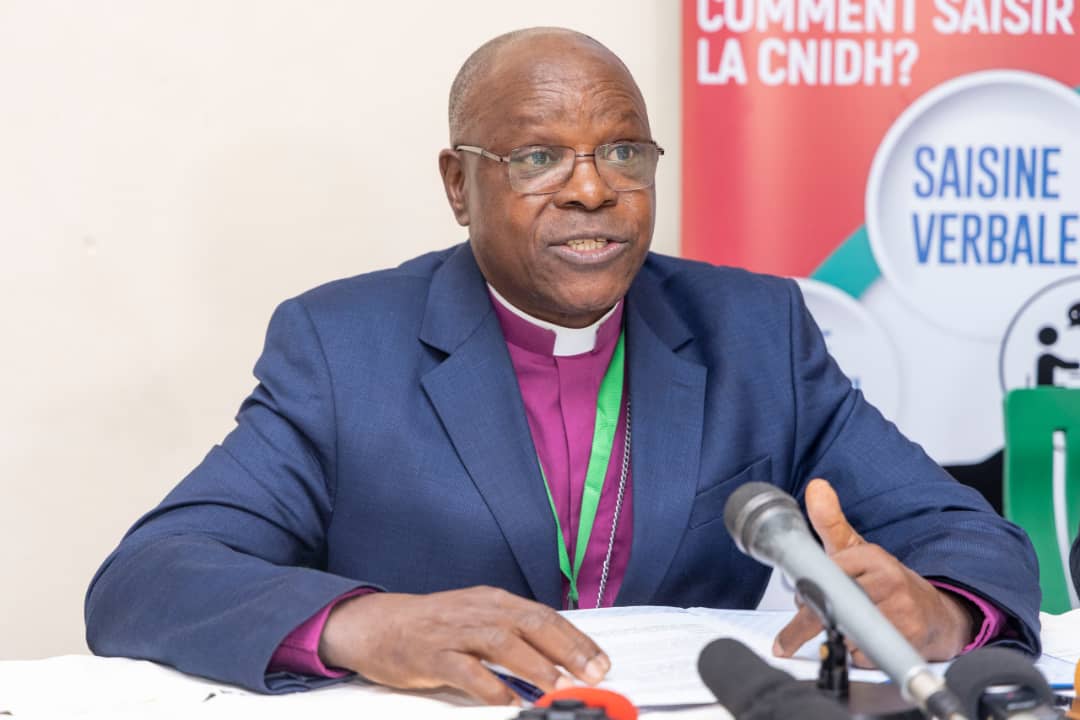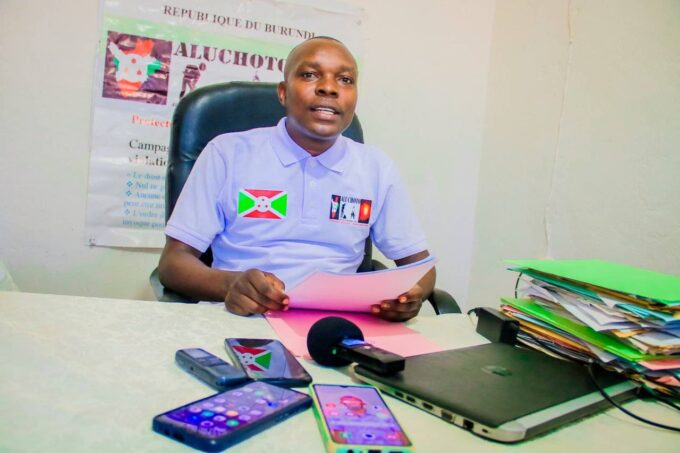The chairman of Burundi’s Independent National Human Rights Commission (CNIDH), Martin Blaise Nyaboho, has expressed concerns over what he described as the deteriorating situation in the country’s prisons following a recent field mission to assess detention conditions.
Speaking to journalists on Thursday, Nyaboho said the commission’s investigation in several prisons across the country uncovered alarming realities, including severe overcrowding, detainees held without case files, and an ineffective judicial system.
“Since April, CNIDH has been visiting prisons to evaluate the conditions under which detainees are being held,” he said. “In some places, we found that the situation is extremely worrying. Our goal is to see improvements when we return.”
According to Nyaboho, the field visits revealed multiple cases of prisoners being held for minor offenses, some of whom have spent years in detention without proper documentation.
“We encountered detainees who do not even have case files, and others imprisoned for very minor charges but already behind bars for three, four, five, or even six years,” he said.
Although Nyaboho did not provide the exact number of affected prisoners, he noted that a large proportion of those detained are over 40 years old—a situation he described as detrimental to national development.
“These are people who could otherwise be contributing to the country’s economy. Instead, the state must allocate resources to feed them. How can we talk about progress under such conditions?” he asked.
The CNIDH chairman said the commission is preparing a detailed report to share with the judiciary, law enforcement, and administrative authorities, aiming to prompt urgent corrective measures.
“In the coming days, we will present our findings at the national level. We are working with the police and administrative authorities to ensure that human rights are respected. Even prisoners must be treated with dignity,” he emphasized.
Nyaboho criticized authorities who misuse their power to intimidate citizens, stressing the need to end arbitrary practices.
“There should be no more cases where someone says, ‘I will imprison you and decide alone when to release you.’ This must stop so that anyone in detention is treated lawfully and with respect,” he said.
Civil Society Raises Similar Concerns
Over the past two months, ALUCHOTO, a local human rights organization advocating for prisoners’ rights reported numerous violations, including arrests without warrants and the prolonged detention of individuals who had already completed their sentences or been acquitted.
“We have seen people attacked, persecuted, and jailed without justification. Some had no active cases yet remain in prison,” said Vianney Ndayisaba, the group’s representative, during a recent press conference. “We call on the new officials to act decisively and ensure that those unjustly detained are released immediately.”
ALUCHOTO also reported widespread mistreatment of inmates, claiming that detainees are often forced to pay bribes to avoid beatings or torture.
Despite these findings, Nyaboho expressed confidence that upcoming consultations will lead to meaningful change.
“Things will improve, starting with those responsible for arrests and punishment, because in some cases they have gone too far. They need to recognize that this behavior cannot continue,” he said.
He warned that failure to uphold the rule of law could have severe consequences for the country.
“A nation without respect for the law is on a path to decline. We do not want Burundi to regress after making progress in improving its image,” Nyaboho said.
The inspection campaign will continue in Bujumbura and other provinces as part of efforts to push for reform.
“That is why we are making it clear: we will visit every prison, return for follow-ups, and hold meetings like this one until real change happens,” he added.
This visit marks Nyaboho’s first official field mission since assuming office nearly three months ago, following a leadership crisis and embezzlement scandal that forced out his predecessor, Sixte Vigny Nimuraba.








Leave a comment